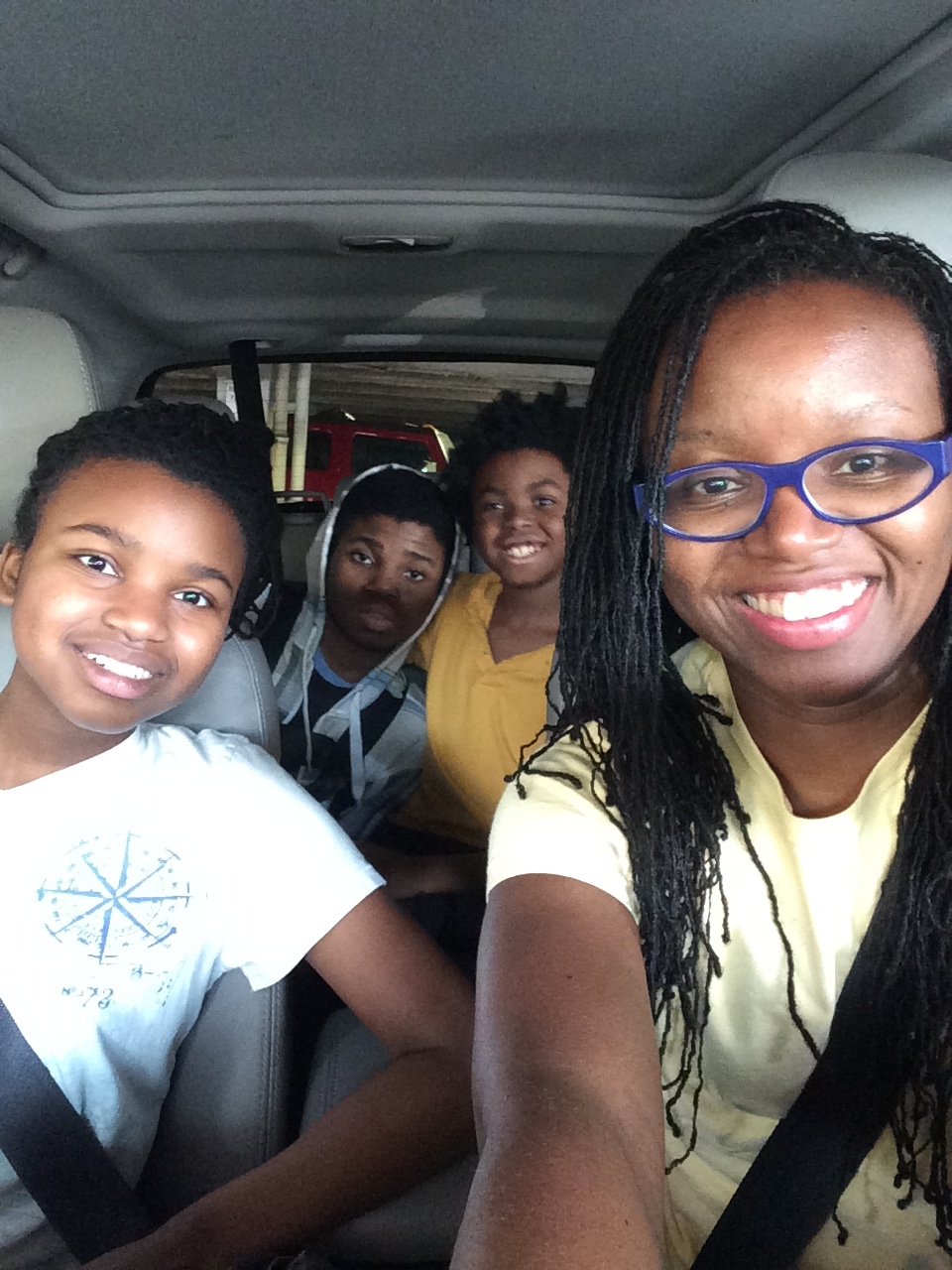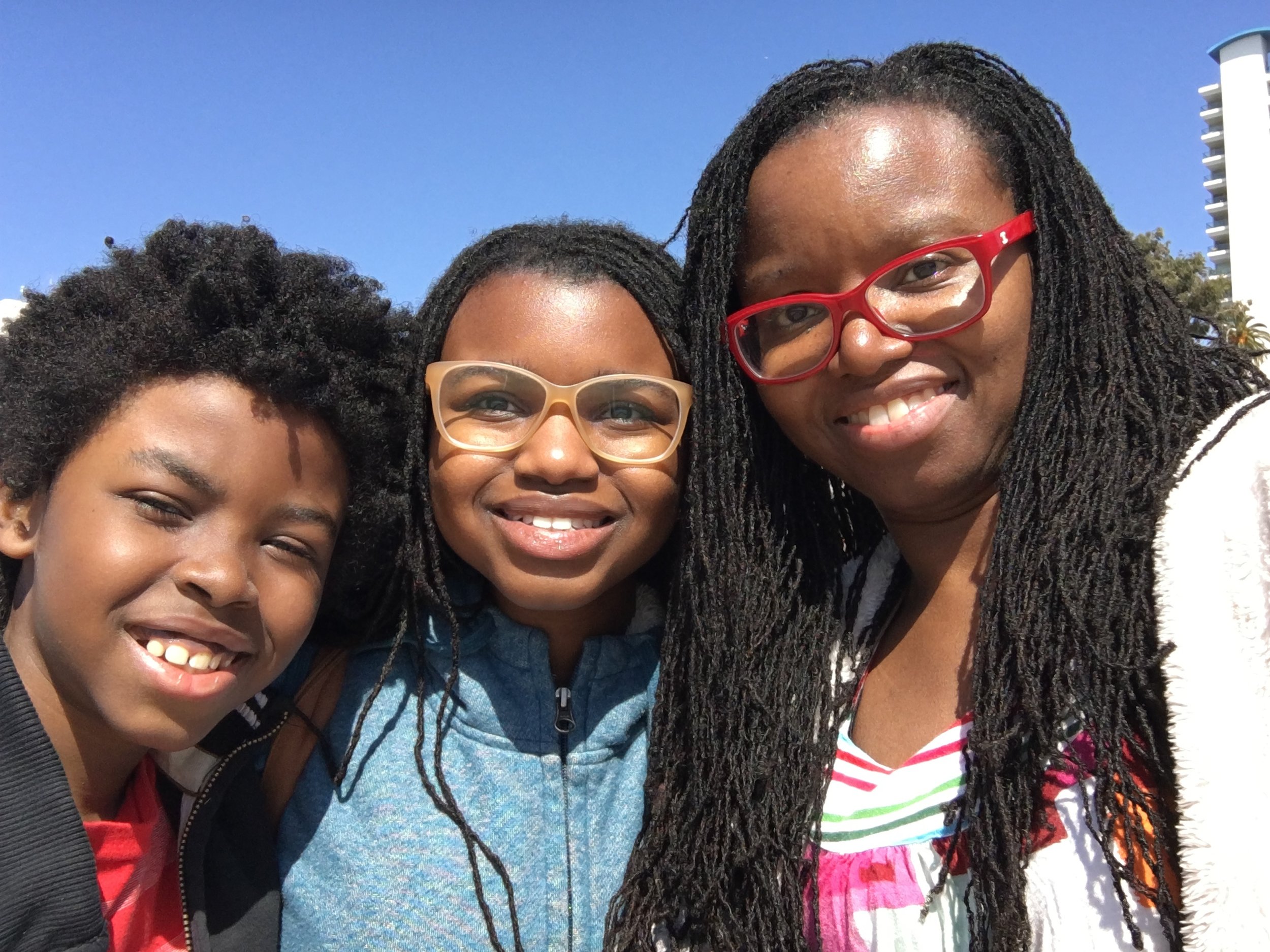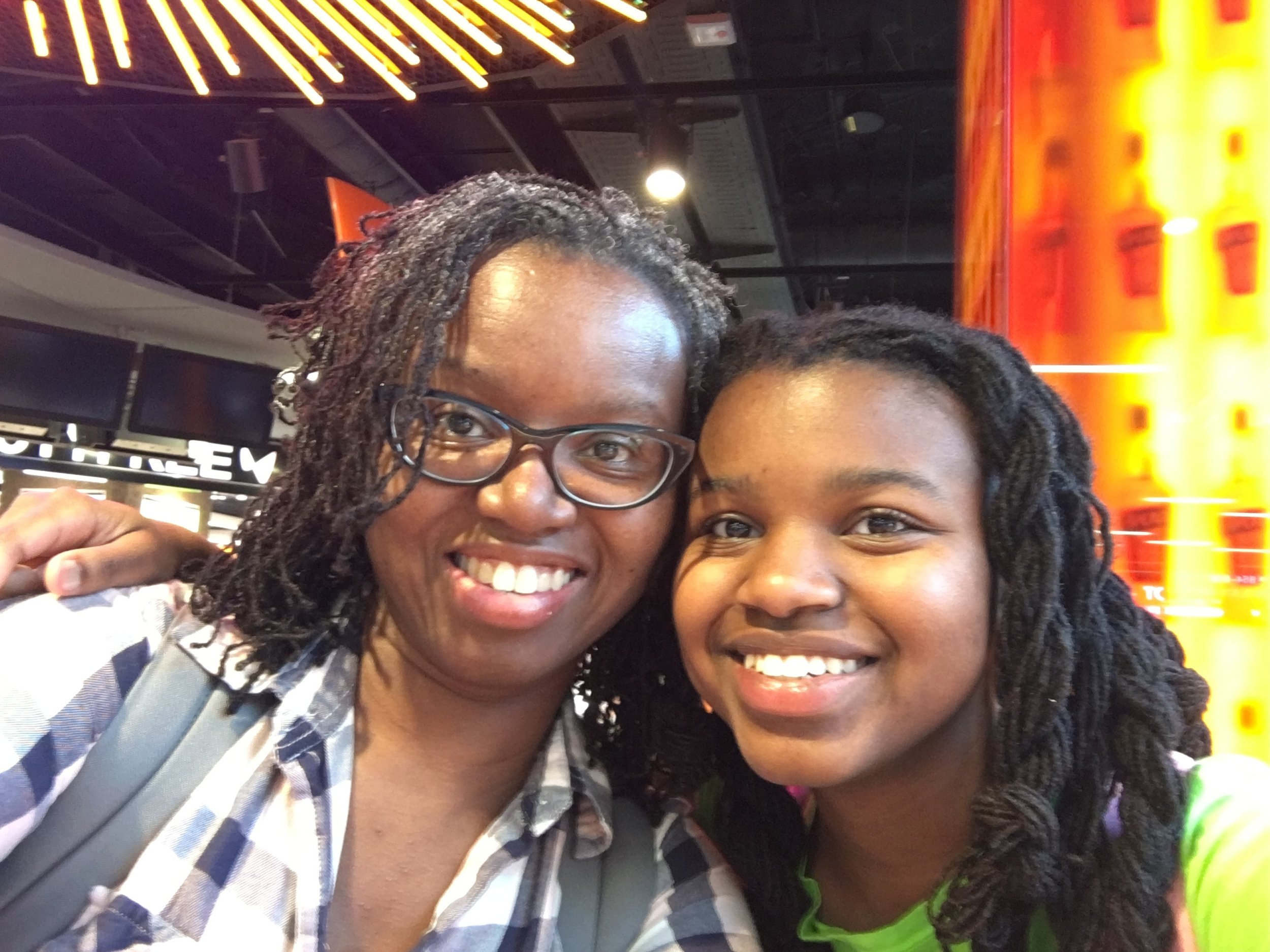Meet Faith Clarke
/Born in Jamaica and based in New York, Faith Clarke is a mother of three, autism awareness advocate, and founder of the Melody of Autism. She is also the author of "Parenting Like a Ninja: An Autism Mom's Guide to Professional Productivity." Her son, Jaedon is on the spectrum and in this profile, she shares the importance of honoring difference, fostering connections in the autism community, and maintaining a peaceful presence as a parent.
Faith is giving our readers a free digital download of Parenting Like a Ninja. Email faith@melodyofautism.com and put "free book" in the subject line.
Tell us about yourself.
I was born in Kingston, Jamaica and now live in Putnam Valley, New York with my husband Isaiah and our three children Jaedon (19), Simonne-anais (16) and Zachary-Michael (13). I’m a girl who loves learning and applying what I learn to real life situations. In school, I loved thinking about what the biology teacher was saying and what that meant in my body, what the impact of physical laws were on my near sightedness, and as an adult, what the science of human thriving and well being means for all of us. I love thinking about systems and processes that help us figure out how to apply what we know to the situations we face. I love intricate art and music, because I’m awed by human capability. I don’t love sports or physical exertion or roller coasters. I exercise because my body needs it, not from any deep love, and I prefer to sit still or walk slowly in the beautiful fast moving world, than to be racing through it.
What was the journey of your son's autism diagnosis?
We got Jaedon’s diagnosis when he was 30 months old. I transitioned from new mother joy to curiosity and then to worry when he was about 15 months old. He stopped responding to my requests and looked like he wasn’t hearing… though I knew he was. He used to imitate my words. Then he stopped. I remember that fateful, though routine, doctor’s visit that started the real panic. “Does he like spinning objects? Does he respond to his name? Is he imitating words?… We should have him evaluated for autism.”
Over the next seven years, I did everything I knew to understand the mechanisms underlying Jaedon’s struggles and to help him in any way possible. He went to school for a few years, and I homeschooled for others. I used a variety of programs until I settled on the “Jaedon Approach.” He had therapists, teachers, and other volunteers coming to our home, and we took him to naturopaths, homeopaths, developmental pediatricians, psychologists, and others outside the home. Jaedon had a second regression at about the age of six, and autism after looked completely different from autism before. The rug was pulled out from under our feet. The steady gains we were seeing seemed to disappear and I had no idea how to move forward. For my sanity, I decided to focus on just one thing at a time, and started to trust my intuition about what that one thing should be. I decided to reduce his stress as much as possible and upgrade his diet. After that, I looked for ways to help him reduce anxiety that didn’t need his participation. Then I found ways to help him to communicate. And through it all, I figured out that I needed to keep myself emotionally healthy. I needed to pay attention to the frequent signs of burn out and energize my self-care routine. This is still a big struggle, but my body and my mood gives me constant reminders that more care is needed there.
What were the greatest challenges you faced along the way?
We’ve had ongoing struggles with bowel training, sleep, OCD and rituals, unexplained crying or what appears to be anger and there’s a constant risk of elopement. Jaedon has 2 younger siblings. There’s constant need to help his brother and sister understand the apparently uneven ground; the rules that don’t apply to Jaedon, the things he gets away with. Like that time with the fish. They were his brother Zachary’s fish…
Zach's birthday present is an aquarium. We spend two weeks trying to find a spot in our home where the tank will be safe from Jaedon. J finds the whole idea quite fascinating and thinks that he should help with the continuous filling of the tank by pouring liquids into the tank. Well, he starts out by pouring water, which we discourage forcefully, but the real panic starts when someone's coffee goes into the fish tank and everything goes downhill from there. The entire bottle of Off (insect repellent) goes into the tank. Twenty ounces of coconut oil kills most of the aquatic plants. Thankfully, the fish have not yet arrived. We condition and recondition the water many times. Visiting friends accuse me of setting up the fish for death…. A few days later, fish in place, I notice some sand in the aquarium. That's really strange, I think to myself. I poll everyone to see who was so generous as to have purchased aquarium sand and applied stealth to putting it into the tank overnight. No takers. After several more minutes of thought, I spy the empty bottle of calcium/magnesium tablets on the dining table, a soggy tablet in the vicinity of the tank and quickly figure out the crime.
We continue to deal with a complex array of challenges, yet, mixed into that is the beauty of Jaedon’s voice, and the insights we have been able to gain, as he’s become more comfortable communicating by spelling his thoughts. “Assume I’m trying to do great things,” he typed one day, to my shock. All the while, his body was stimming, and he was speaking his repetitive words and requests. I’ve come to really understand that Jaedon is in his body so I’ve switched my focus to helping him cope with what is, helping him to build skills to make steps and to practice being heard, something that’s really hard for our kids with autism, regardless of how that autism shows up.
What resources and support systems have you found to be most impactful for your family, your son, and your marriage?
I think autism is a complex, multi-system challenge and so it’s hard for any single resource to help across the board. Early in my journey, I appreciated reading books about the plasticity of the brain. That gave me hope. Norman Doidge's The Brain That Changes Itself was very helpful. Relationship-based and play-based approaches like Floortime and the SonRise program helped me build a relationship with my son that wasn’t confined to skills and tasks that I had to teach him. Along the way, I met like minded parents and practitioners and they have become my lifeline. A close community of friends that have your back is invaluable and I have that, scattered across a few countries in tiny clusters.
What inspired you to create Melody of Autism?
I wanted to expand the village around every family caring for a child with autism. My family loves music and beautiful music happens when several notes, instruments, musicians play together. They are different and yet they complement.
I want to promote a philosophy of the complement of difference. A supportive tribe is one that honors the differences and looks for the connections between the different parts. Whether in the caregivers we connect with families, the autism sensitivity training we do or the coaching and support we give parents, this is the message we spread. Honor differences, promote connections.
And what inspired you to write Parenting Like a Ninja?
One of the questions that I get often is "How do you do it?" and sometimes I wonder "Do what?" But as I share with moms, I hear the common story: overwhelmed, exhaustion, stress. I know that because I live that too. But I've also lived on the flip side: energized, inspired and active. Parenting Like a Ninja is a discussion of a journey from overwhelmed and exhaustion to energy and motivation — for life, work, AND parenting. I wrote it to inspire moms to believe in the YES, to nurture their deep desires and turn those desires into fuel and energy, even when autism life is chaotic.
If you could share one piece of advice for parents raising a child with autism, what would it be?
Many kids on the autism spectrum live in anxiety 24/7. A peaceful presence is the best gift you can give your child and yourself. The journey with autism will create many anxious, even terrifying moments. Learning to really stay in the moment, in a peaceful way, vs living in regret or in fear of the future, reduces your anxiety level and will help your child be more settled. Calmer children respond better in school, therapy and can build more solid relationships. Calmer parents are help their and can make better decision about what’s needed for their kids. Study how to be peaceful.









